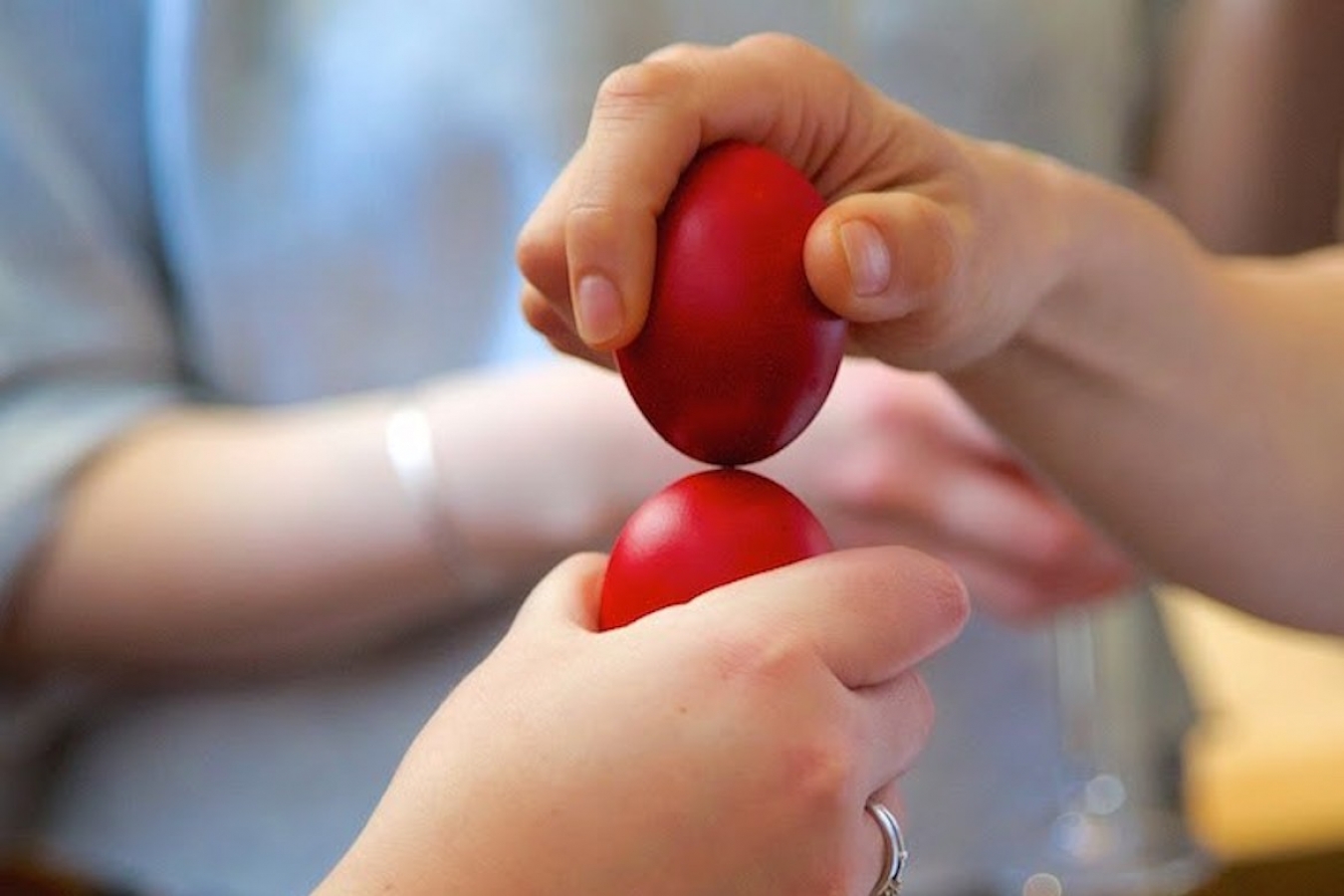
Discover Greek customs & morals
Red cloths on the balconies and red eggs
On Holy Thursday, raise your eyes on the balconies for the red fabrics. There are many housewives who follow the custom of red cloth in parallel with the dyeing of red eggs. You may see a lot of red fabrics, and they were not hung there by chance. Fabric and dyeing of red eggs symbolize the red blood of Jesus Christ, but, at the same time, it expresses the joy that the Resurrection brings with it as well. According to traditions, the cloth used by housewives only to dye eggs. While in the recent years the eggs are dyed also in other colors, two things remain traditional for the Greek Easter Eggs: the specific day to dye eggs and the eggs cracking after Jesus Resurrection from the dead.
Lambada, traditional Greek Easter candle
Late on Saturday night, before midnight all the people go to all the churches, which all seem full to bursting. Then follows a festival of light that is a true delight - at midnight the church goes dark and the bells ring out to proclaim the resurrection, and people start cheering and letting off fireworks and crackers! The Greeks young and old buy or make their own Easter candles which they take to the church on this night. The priest lights a candle representing of Jesus’ eternal flame and everyone receive the Holy Light and pass it on to others. People carefully carry their candle home and make a black cross on their house with the flame to bless themselves. For Greek Orthodox Easter, it is tradition that the Godparents give the gift of an Easter lambada to their godchild.
Red Egg Cracking
Despite this deep religious meaning, egg cracking has evolved into a fun tradition for the faithful of all ages in Greece and beyond, which many look forward to each Easter. Everyone selects one egg, carefully choosing the one that seems the strongest. Then the egg cracking begins! One cracks their chosen egg on top of another’s chosen eggs, saying “Christos Anesti” (meaning “Christ has risen”). The other one responds, “Alithos Anesti” (meaning “Indeed, he did!”). Each time there is a winner and loser. Loser is obviously the one with the cracked egg. The egg cracking keeps on going, until there is only one winner- the chosen one with the un-cracked egg! The one with the strongest egg is said the have good luck for the whole year. Egg cracking, starts on the night of the Resurrection Service, the night before Easter, and continues the next day at the Greek Easter feast.

